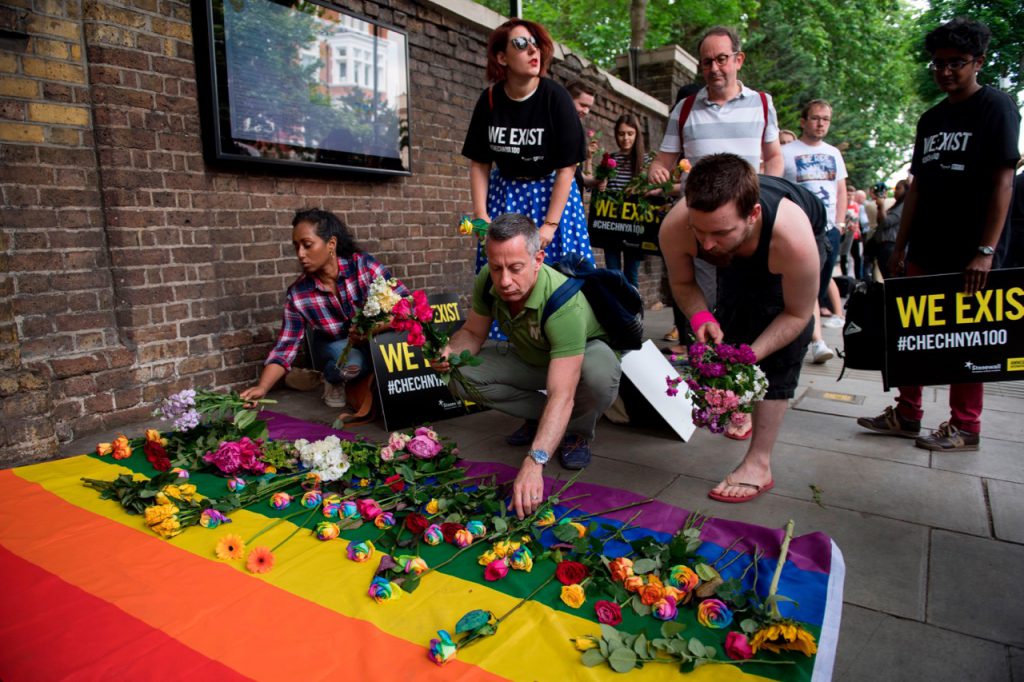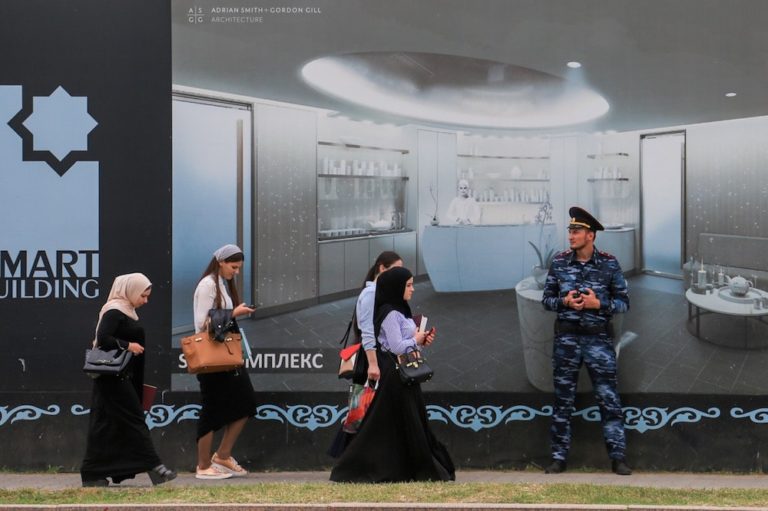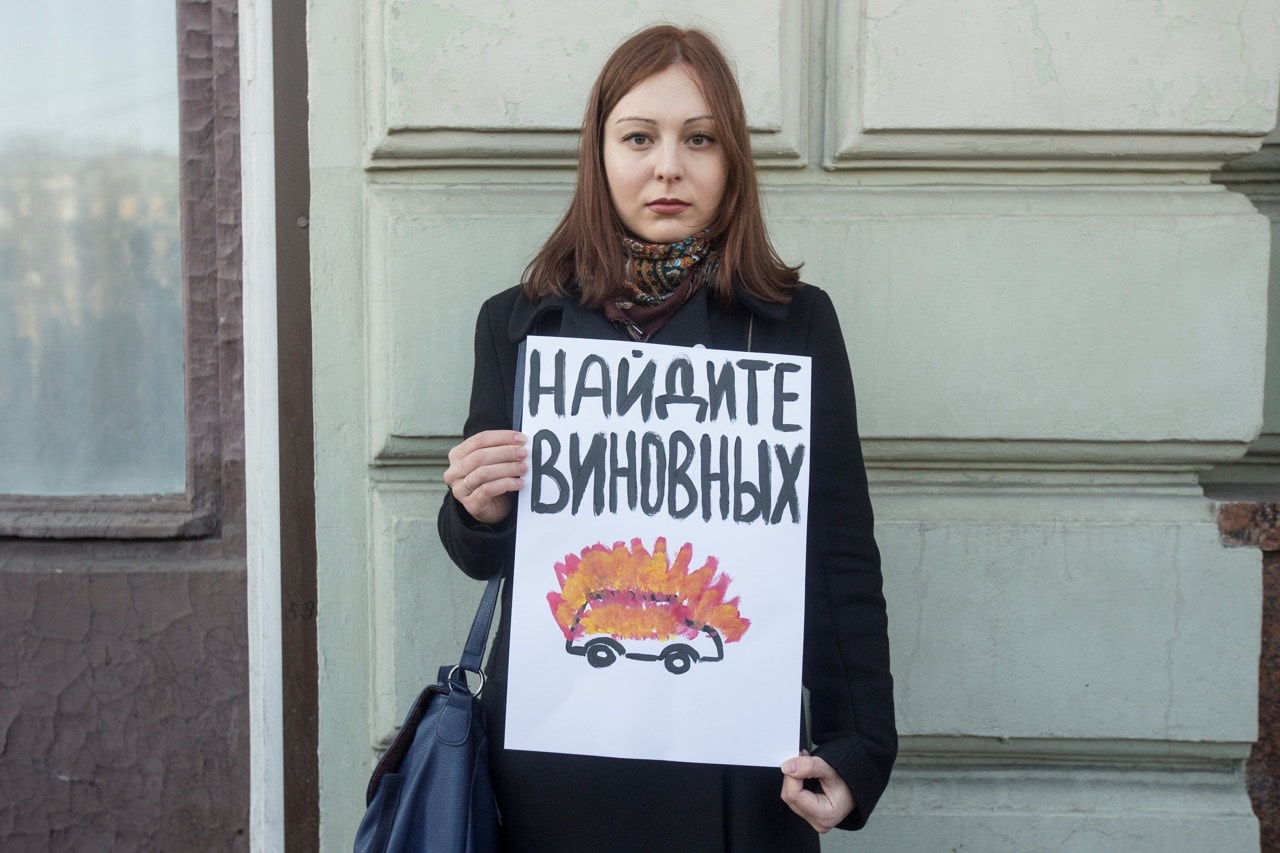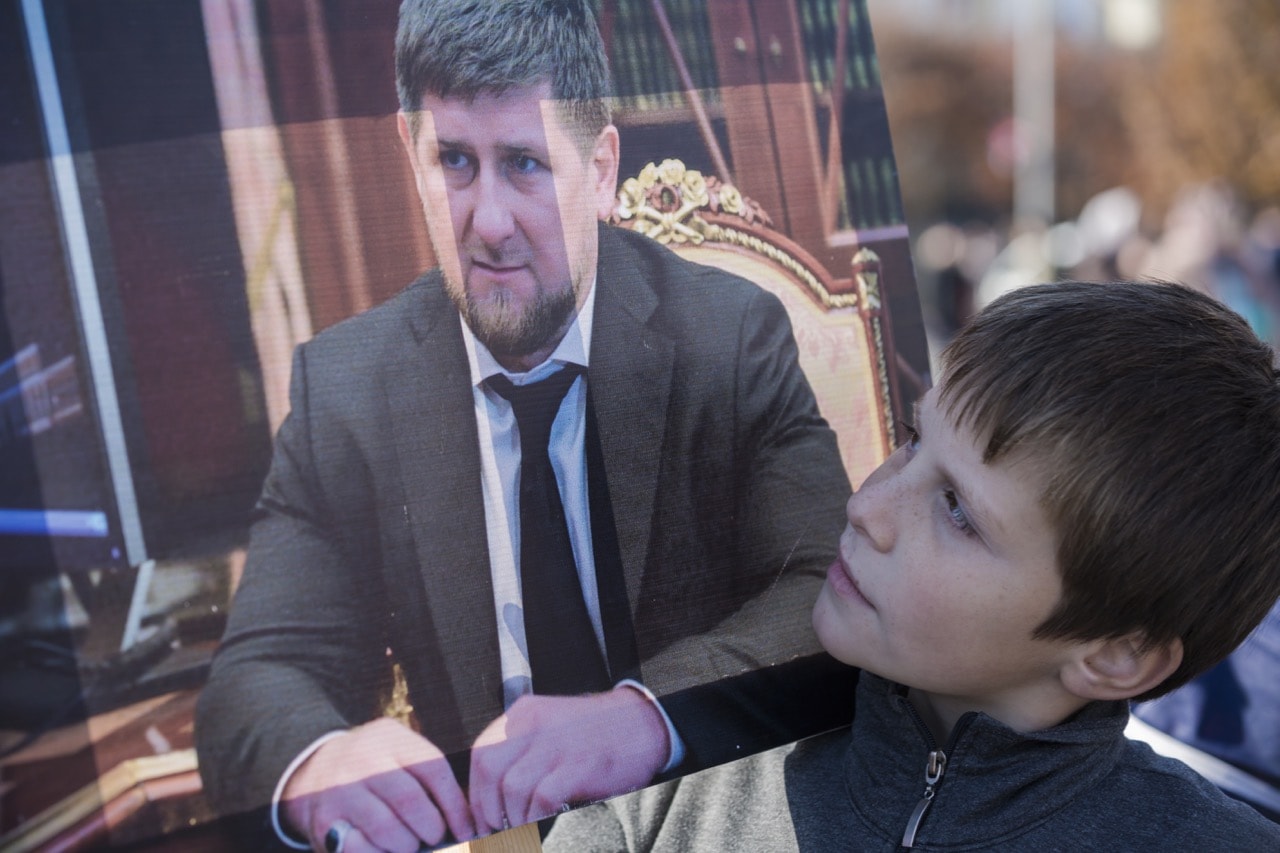Police in Chechnya have carried out a new round of unlawfuldetentions, beatings, and humiliation of men they presume to be gay orbisexual.
This statement was originally published on hrw.org on 8 May 2019.
Police in Chechnya have carried out a new round of unlawful detentions, beatings, and humiliation of men they presume to be gay or bisexual, Human Rights Watch said today. The new abuses come against a backdrop of absolute impunity for the vicious large-scale anti-gay purge in spring 2017. The Russian authorities should carry out an effective investigation into the anti-gay abuses and hold those responsible to account.
Human Rights Watch interviewed four men who were detained for between three and 20 days, between December 2018 and February 2019, at the Grozny Internal Affairs Department compound. Police officials there kicked them with booted feet, beat them sticks and polypropylene pipes, and tortured three of the four with electric shocks. One was raped with a stick. The men’s accounts are consistent with a crime report filed on January 29 with Russia’s chief investigative agency by the Russian LGBT (lesbian, gay, bisexual, and transgender) Network, a prominent LGBT rights group, which stated that in December and January, police in Grozny, Chechnya’s capital, rounded up and abused 14 men. The report suggested that the true scope of detentions was broader.
“There wasn’t anything remotely resembling an effective investigation into the anti-gay purge of 2017, when Chechen police rounded up and tortured dozens of men they suspected of being gay,” said Rachel Denber, deputy Europe and Central Asia director at Human Rights Watch. “Impunity for the 2017 anti-gay purge has sanctioned a new wave of torture and humiliation in Chechnya.”
The four men Human Rights Watch interviewed said that the police interrogated them under torture, demanding that they identify other gay men in their social circles, in some cases showing them photographs. Police seized the detainees’ cell phones for the same purpose.
One man said the police handed him over to his family, exposing his sexual orientation and indirectly encouraging his family members to kill him. Some of those interviewed said this happened in at least two other cases. In at least three cases, police demanded large sums of money for the men’s release.
Two of the men whose time in unlawful detention overlapped gave closely matching descriptions of the detention facility, the other inmates, the daily routine, the police officials, and the abuse inflicted on presumably gay captives. The other two were held in other parts of the police department and described similar treatment and gave similar descriptions of some of the same officials involved in the abuse.
All four said they were denied food and had only limited access to water. Three said the police shaved off their beards and hair or forced inmates to shave each other’s heads. The same happened to other detainees police presumed to be gay.
Police officers also humiliated them by probing into the details of their lives, using homophobic slurs, exposing them as gay to other inmates, and forcing them to undress. Police also forced several of the presumed gay inmates to clean the toilet and wash floors and doors along a corridor, making it clear to them and the other inmates that the gay detainees were given “women’s work” as a form of humiliation.
Two of the interviewees said they were held mostly in a large cell with some 40 other inmates on the fourth floor of a building on the police department compound. During their time in confinement, they encountered five other inmates detained and subjected to cruel and degrading treatment because of their presumed sexual orientation.
Another interviewee was held in a garage on the compound and then in a lock-up cell with another 8 to 10 men, one of whom was an acquaintance and was detained because of his presumed sexual orientation. The fourth interviewee was held in a basement by himself.
Activists of the Russian LGBT Network told Human Rights Watch that based on the information the network received from various sources and cross-checked, Chechen police detained at least 23 men between December and April because of their presumed homosexuality. At least 18 of them were held at the Grozny Internal Affairs Department. Human Rights Watch is not in a position to determine the full scope of this new wave of persecution.
Human Rights Watch did not find indications that top Chechen authorities sanctioned the new wave of detentions, as they had with the anti-gay purge of spring 2017. However, researchers determined that the police involved felt at liberty to hold people in unlawful, incommunicado detention, and to humiliate and torture them for days because of their presumed sexual orientation.
Chechen authorities have denied reports of the new wave of persecution. Speaking to Interfax in January, Alvi Karimov, a spokesman for Ramzan Kadyrov, the Chechnya governor, said: “This is an absolute lie. . . There were no detentions on grounds of sexual orientation in the indicated periods in the Chechen Republic.”
Russian federal authorities have not commented on the allegations. There has been no effective investigation in response to the crime report Kochetkov filed in January. Kochetkov told Human Rights Watch that Russia’s chief investigative agency merely forwarded the report to the investigative authorities in Chechnya, who sent him a letter in March seeking “additional information.” Kochetkov said the Russian LGBT Network did not engage with Chechen officials, and had said in its report that due to Chechnya’s climate of lawlessness and impunity, the investigation should be carried out by federal authorities.
Despite a sharp international outcry and Russian authorities’ repeated promises to investigate the 2017 crackdown, the government has taken no action. No criminal case has been opened into an October 2017 complaint by a survivor of the purge, and the Russian authorities did not provide him with the protection he repeatedly requested. In May 2018, Russia’s justice minister, Aleksander Konovalov, told the United Nations Human Rights Council (UNHRC): “The investigations that we carried out … did not confirm evidence of rights’ violations, nor were we even able to find representatives of the LGBT community in Chechnya.”
In November 2018, 16 participating states of the Organization for Security and Co-Operation in Europe (OSCE) invoked the organization’s “Moscow Mechanism” and appointed a rapporteur to look into allegations of abuses in Chechnya, including the anti-gay purge. In his report presented to the OSCE Permanent Council in December, he concluded that Chechen authorities persecute LGBT people, attack human rights defenders, and carry out torture and other blatant abuses, while the Russian government “appears to support the perpetrators rather than the victims.”
In March, 30 countries supported a joint statement at the UNHRC expressing deep concern about reports of persecution of LGBT people in Chechnya and called for a thorough and impartial investigation.
Russia’s international partners, including the European Union (EU), its member states, Canada, and the United States should press the Russian authorities to thoroughly investigate accounts of torture and hold those responsible to account. They should also urgently provide safe sanctuary to victims or people at risk of persecution.
“Russian authorities should immediately investigate the new wave of torture and humiliation by the Chechen police of men they believe to be gay and, finally, carry out an effective investigation into the purge of 2017,” Denber said. “The investigations should be conducted at the federal level with security guarantees provided to victims and witnesses who come forward, and their families. Otherwise, we can expect further episodes of this depraved abuse.”
For detailed findings, please see HRW’s site.



